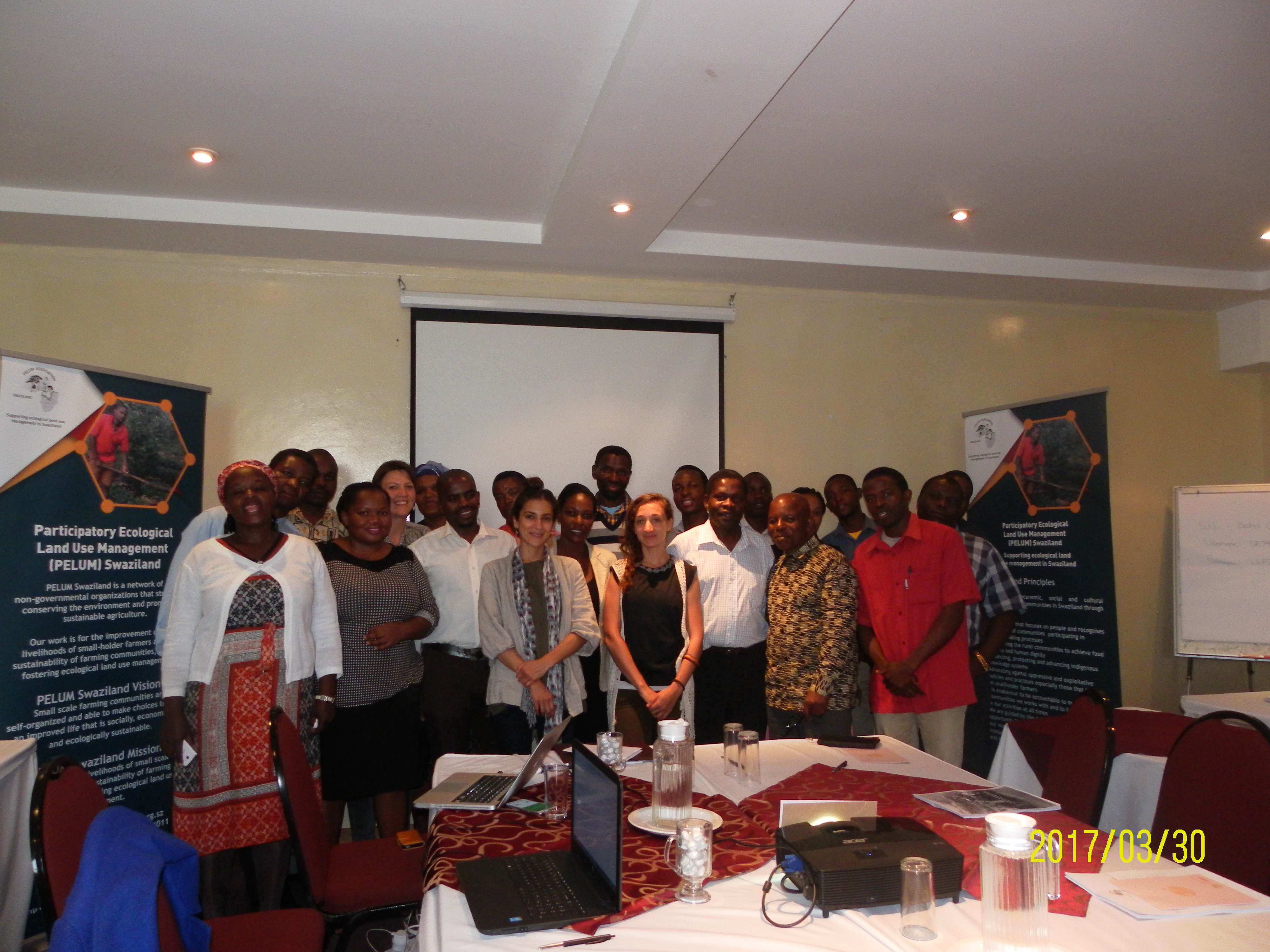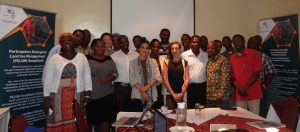Biosafety Capacity-Building Workshop
PELUM Swaziland in partnership with Third World Network and Africa Centre for Biodiversity held a Biosafety Capacity Building workshop at Bethel Court on the 30th March 2017.
Biosafety Capacity-Building Workshop
Expanding the Knowledge of GMOs
The workshop was aimed at increasing the capacity of agriculture trainers and extension officers on genetically modified organisms, or GMOs, and the chemicals associated with them; raise public awareness of GMOs and their effect on human health and the environment as well as small scale farmers and increase public participation in the decision making process of approving /disapproving GMO applications for release into the environment.
Unintended Effects of GMOs
Dr Eva Singhji from Third World Network explained what GMOs are and the potential hazards of the technology. She explained that there is no simple one-to-one relationship between genes and characteristics, that no one gene works in isolation and that what we inherit is not just determined by our genes, but is spread over the web of organisms and their interaction with the environment. Dr Singhji also stated that there are a host of unintended effects of genetic modification including toxicity, allergenicity, environmental contamination and loss of biodiversity as well as a threat to food security.
Socioeconomic Effects of GM Crops
Linzi Lewis, a researcher from Africa Centre for Biodiversity spoke about the socioeconomic risks of GM crops specifically in Swaziland. Some of the socioeconomic effects she said need to be considered in the application process of growing GM crops include the following:
- Indebtedness
- Loss of livelihoods
- Equity issues along gender, age and other aspects
- Impacts on consumer rights/ freedom of choice
- Implications for the resilience of food production systems under extreme conditions
- Intellectual Property Rights (IPR) issues
- Impacts on overall quality of life
- Ethical considerations
- Religious beliefs
Case Studies for Swaziland
Sabrina Masinjila from Africa Centre for Biodiversity concluded the workshop with a presentation on case studies from other countries and their experiences after conducting field trials of GM crops and others after releasing GM cotton commercially. In countries that were growing BT crops, secondary pests were said to have emerged thus bringing back the need for stronger pesticide use. In Burkina Faso, for example, after commercially releasing GM cotton the country then retracted and banned GM cotton after it was noted that the quality and length of the GM cotton was lower than the conventional non-BT cotton that they had been growing previously.



